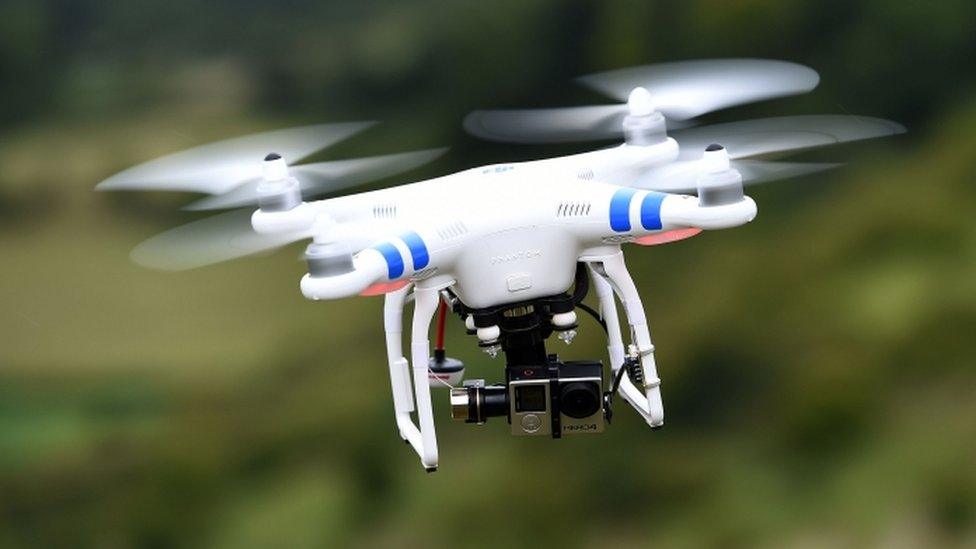Police to get new powers to tackle illegal drone use
- Published
- comments
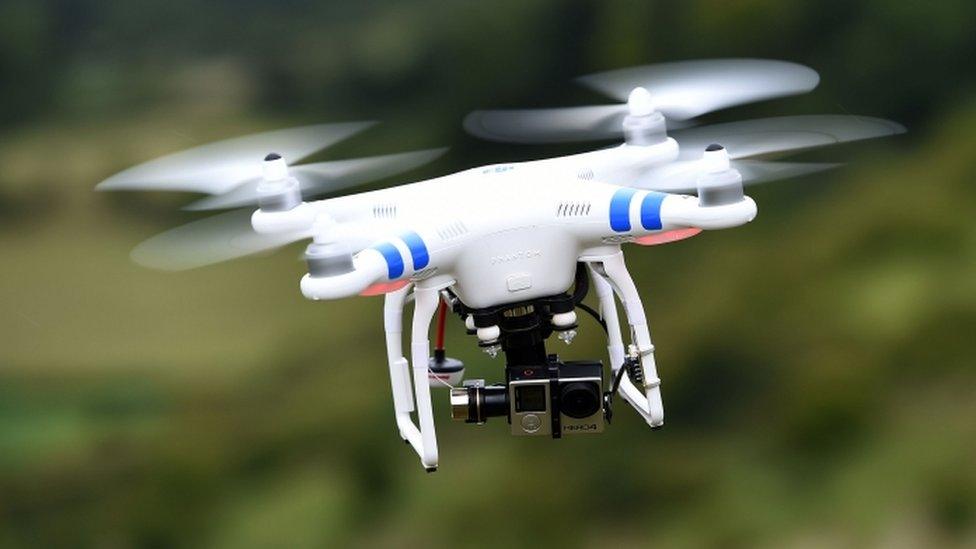
Police will be given new powers to tackle the illegal use of drones, the government has announced.
The area around airports where drones are banned from flying will also be extended, and from 30 November operators of drones between 250g and 20kg will need to be registered.
Labour said action on drones should have been taken years ago.
Last month flights from Gatwick were suspended for more than 36 hours after drones were reported over the airfield.
The plans follow a consultation, external into the use of drones which began in July.
The government said it would also expand technology to detect and repel drones from sites like airports and prisons, to prevent any repeat of events like those at Gatwick airport in December.
New legislation will give police additional powers to land drones and require users to produce the appropriate documentation.
They will also be able to search premises and seize drones - including the electronic data stored within the device - where a serious offence has been committed and a warrant is secured.
For minor drone offences, police will be able to issue fixed-penalty notices, with fines of up to £100 for offences such as failing to comply with an officer when instructed to land a drone or not showing the registration required to operate a drone.
Registered drone users will also need to take an online competency test.

Analysis
By Theo Leggett, business correspondent
Sometimes it's important to be seen to be doing something. That may well be the case with the government's plans to combat drone misuse.
It had been planning action for some time - and had already held a major consultation on its proposals. Then came the dramas at Gatwick before Christmas.
So would the new measures have made any difference in that situation? Probably not. Flying a drone close to an airport was already illegal, under legislation passed last year. The problem there was actually finding those responsible.
But drone misuse is now a hot topic, so announcing these measures now, and widening the exclusion zone around airports, may help draw off some of the political flak.
Meanwhile the Home Office will "begin to test and evaluate the safe use of a range of counter-drone technology in the UK".
That may well be the wisest way forward. But critics are likely to ask why such testing wasn't already under way.
After all, the threat was a known one, and it seems the Army at least had access to that kind of technology.

Speaking in the Commons, Transport Secretary Chris Grayling said the disruption caused at Gatwick was "deliberate, irresponsible and calculated, as well as illegal" and any restriction zone around the airport would not have prevented an incident of this type.
He said the problems at Gatwick were solved by "smart and innovative use of new technology", but declined to reveal what this was for "security reasons".
He added that the Ministry of Defence remained "on standby" to deal with any further problems caused by drones at airports.
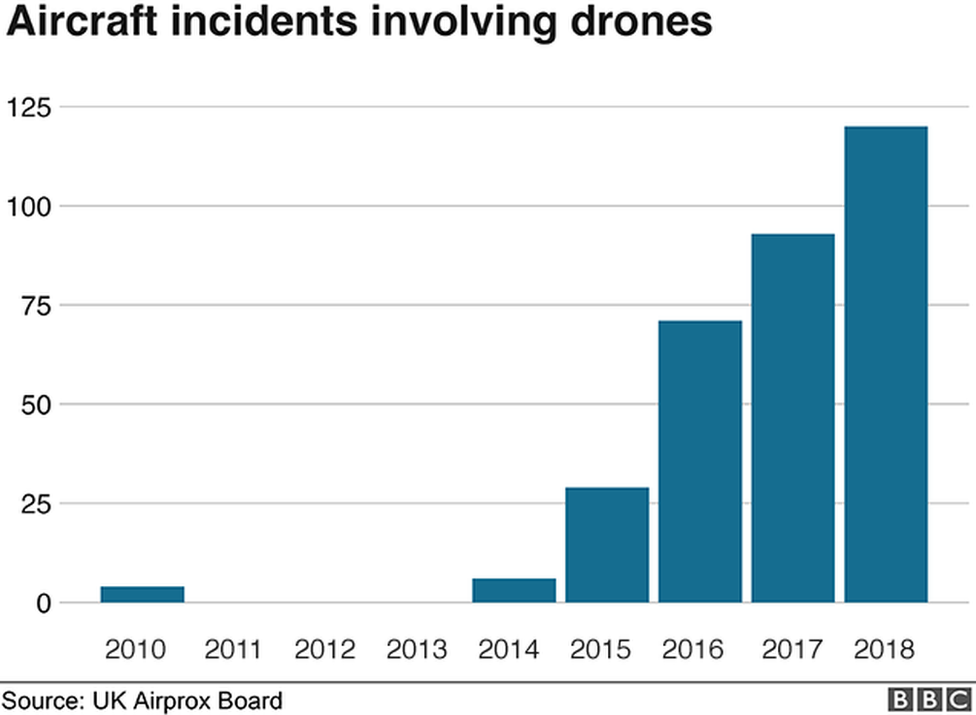
Last year the government made it illegal to fly a drone above 400ft (120m) or within 1km (0.62 miles) of an airport.
The exclusion zone will now be extended to the current Air Traffic Zone around airports, which is approximately a 5km (3.1 miles) radius, with additional extensions from runway ends.
Endangering the safety of an aircraft is a criminal offence which can carry a prison sentence of up to five years.
BBC home affairs correspondent Tom Symonds said the extension of exclusion zones around airports was likely to be welcomed by the British Airline Pilots Association (Balpa), which has lobbied for tougher rules.
The number of aircraft incidents involving drones has grown dramatically in the past few years. In 2013 there were zero incidents, compared with more than 100 last year.
There has also been an increase in the use of drones to smuggle drugs, mobile phones and other contraband into prisons.
Labour's shadow transport minister Andy McDonald said while the measures were welcome, they should have been introduced sooner.
"Labour has repeatedly warned Department for Transport ministers over the last several years that they needed to take action on drones yet nowhere near enough has been done," he said.
He added that the failure to bring forward detailed plans on drones had "disastrous consequences" and it was "astonishing" the government had no procedures in place to deal with events like those at Gatwick airport.
- Published30 May 2018
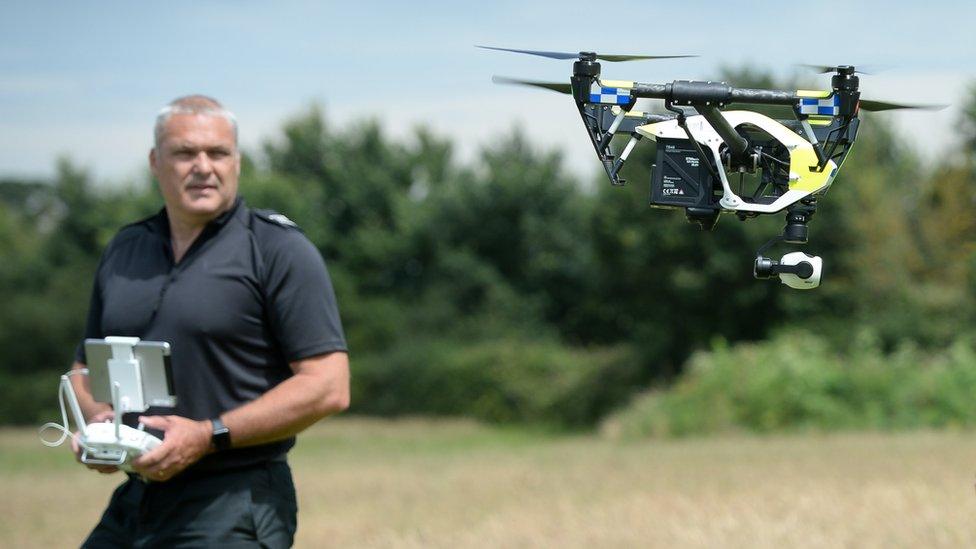
- Published26 July 2018

- Published21 December 2018
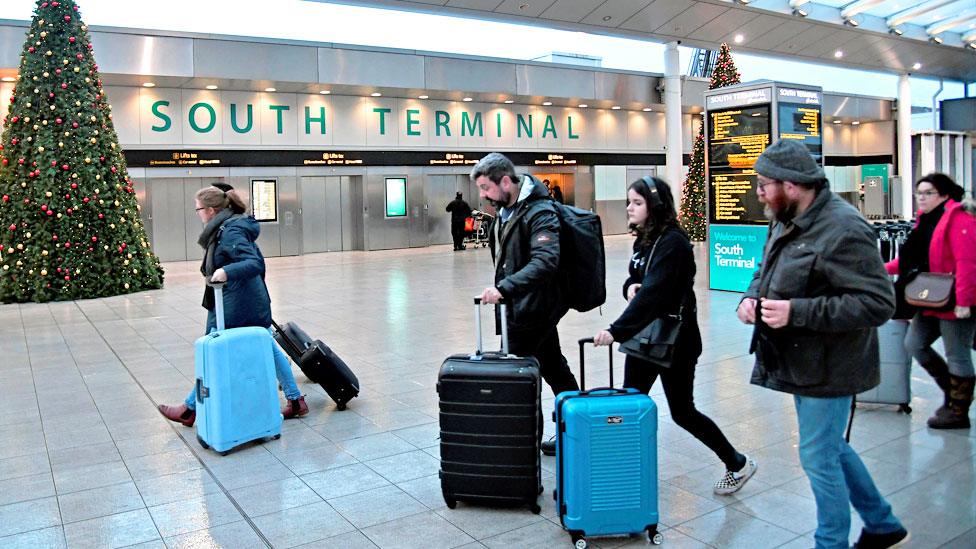
- Published21 December 2018
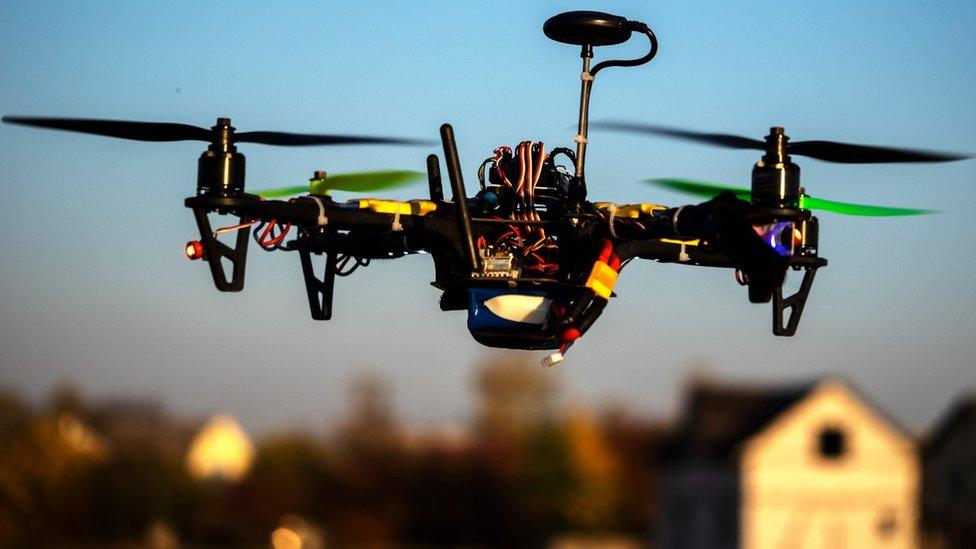
- Published23 February 2016
